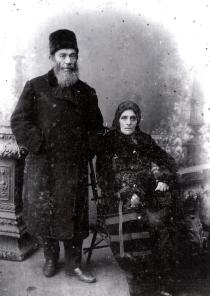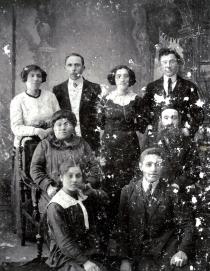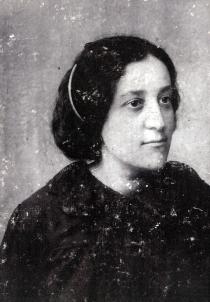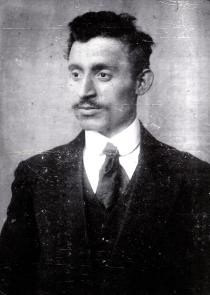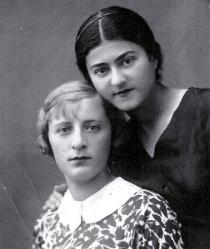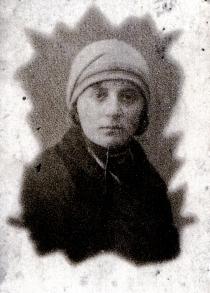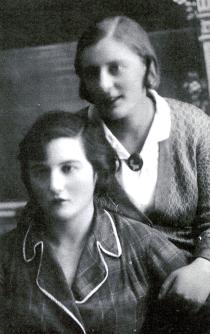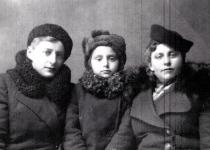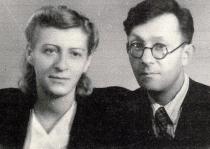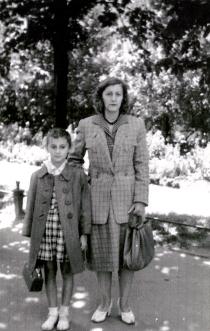My husband, Ruvim Gershenovich, and me. The photo was taken in 1948 in Lvov. We had this photo taken after moving into our new apartment.
I met my husband in 1940. He came from Kiev to visit his relatives, the Roizmans, the couple from whom I was renting my room. Ruvim was born in Nezhin in the Chernigov region in Ukraine in 1905. He graduated from the Financial College in Kiev. He was an ordinary man, and very nice and caring. He worked as an accountant in Kiev. He stayed in Tiraspol for a few days and then returned to Kiev. Later, he sent me a letter, writing that he liked me very much. The letter was in Russian, but he spoke Yiddish. We corresponded for a year. He came back at the end of 1940 and we registered our marriage in Tiraspol. After we got married he used to speak Yiddish to me and I addressed him in Russian. He was planning to rent an apartment in the summer of 1941 so I could move to Kiev.
Our plans were thwarted by the events of June 22, 1941 [the day Nazi Germany attacked the Soviet Union]. The war began. Two days later my husband arrived from Kiev. He told me that I had to go to his parents and that he was to be recruited to the army. We took a train to Kiev on that same day. My husband went to the military registry office, but they let him go due to his poor eyesight. They summoned him at the end of July. We went into evacuation. First we went to Tashkent but there was no room for us in Tashkent and we moved on to Namangan, about 50 km from Tashkent. At the beginning of 1945 my husband was wounded and stayed in hospital. He got better there and was demobilized.
My husband knew that his house in Kiev had been destroyed. His commanding officer got an assignment in Lvov in the summer of 1945. He suggested that Ruvim should go to Lvov and said he would help him find a job. Lvov was forced to join the USSR in 1940. After the war Polish people were allowed to go to Poland and many of them left Lvov. There were many vacant apartments. Ruvim found an apartment for us and called me to come to Lvov. When I arrived in Lvov, my husband was working as an accountant at a tailor's shop. Later, it became a garment factory. Our daughter Maya was born in 1949. She went to kindergarten when she turned 3 years old, and I got a job as an accountant at the garment factory where my husband was working.
We lead a quiet life. My husband was a very decent, quiet, kind man. He loved our daughter dearly. He liked to speak Yiddish when there were no outsiders around. Anti-Semitism in Lvov was stronger than anywhere else. People in Lvov hated the Soviet power and had much fear of it. They believed Jews to be supporters of the Soviet power. We were openly despised and we could often hear in the streets and in public transportation: 'Zhyds [kikes], go to Israel!' It was not advisable to show one's Jewish identity and we gave up our Jewish traditions.
My husband was wounded during the war and had a shell splinter in his chest. One evening he felt very ill on his way home. When he got home, he fainted. I called an ambulance. But he got worse and died. The splinter must have reached his heart. He died in 1957 when he was 52 years old.

